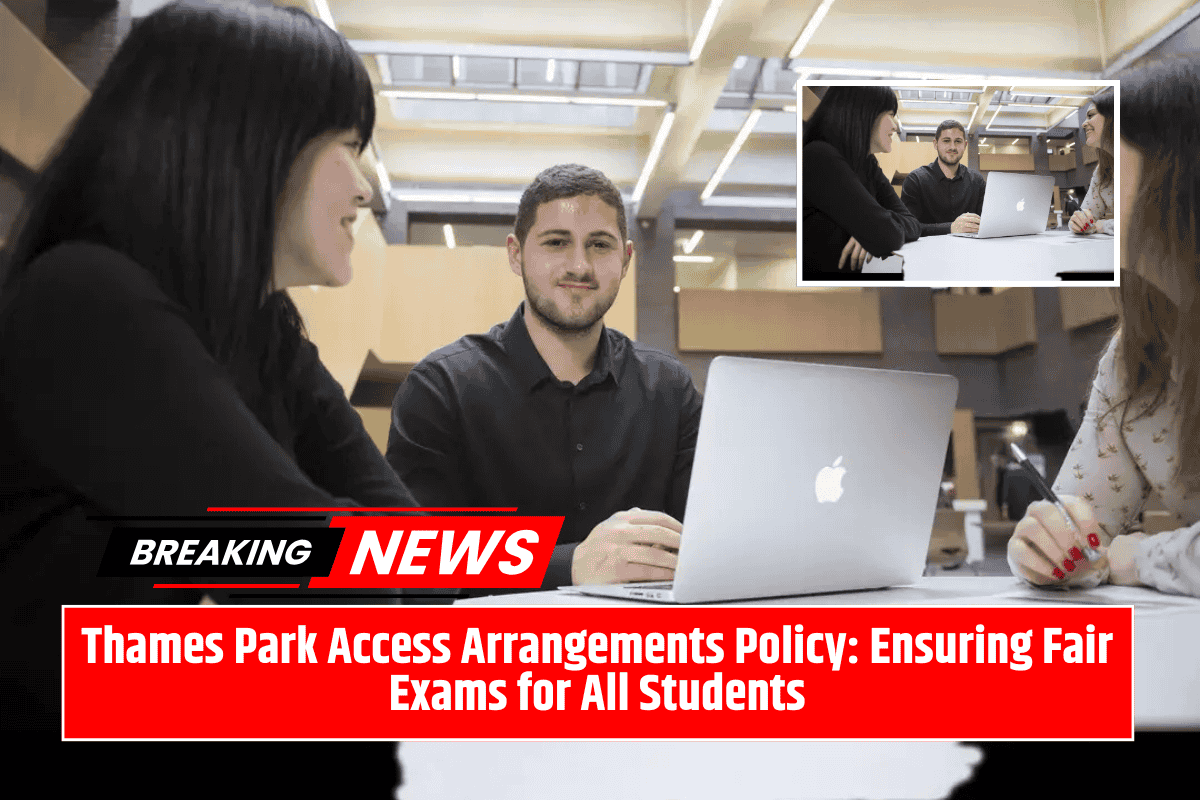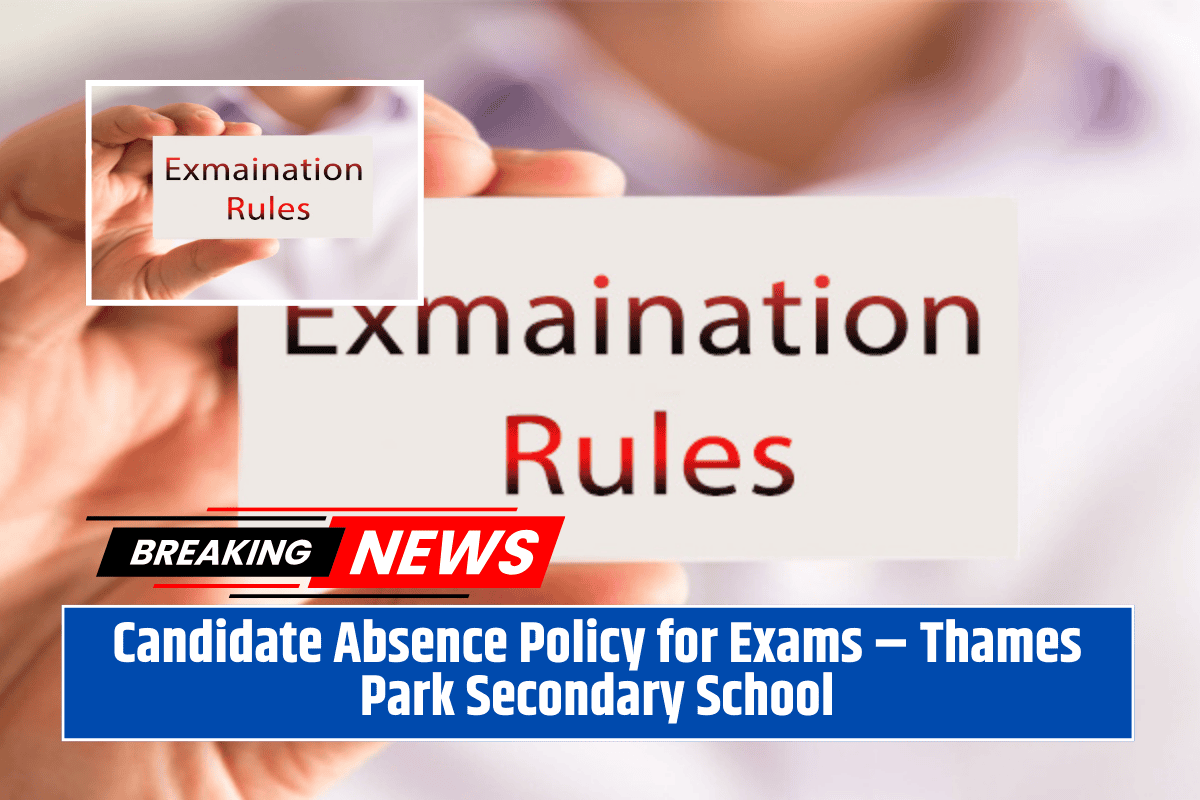Thames Park Secondary School aims to give every student a fair chance in exams and assessments. This Access Arrangements Policy is designed to support students who have learning difficulties, disabilities, temporary injuries, or other challenges that might affect their performance during exams. The policy ensures that these students can show what they know without facing unnecessary barriers, while still maintaining the fairness and integrity of the assessments.
What Are Access Arrangements?
Access arrangements are special adjustments made before exams to help students with specific needs. These may include using a word processor, getting extra time, or sitting in a separate room. These arrangements don’t change the difficulty of the exam but help the student perform at their best.
What Are Reasonable Adjustments?
Under the Equality Act 2010, reasonable adjustments must be made for students with disabilities to help them overcome significant disadvantages during exams. For example, a student who is visually impaired may receive exam papers in Braille. However, adjustments must be practical, cost-effective, and should not affect exam security or fairness.
Purpose of the Policy
This policy confirms that:
- Thames Park leads and manages access arrangements effectively.
- Staff follow official rules from the Joint Council for Qualifications (JCQ).
- Only qualified staff assess and recommend support.
- All arrangements are made ahead of exams with proper records kept.
Key Staff Involved
Lucy King, the school’s SENCo, leads the access arrangements process. Other important roles include the Head of Centre (Sam Dyer), Exams Officer (Kat Farrell), and supporting staff. They all work together to assess student needs and implement support.
How Decisions Are Made
The SENCo is responsible for deciding which students need support and what kind of support is suitable. The school cannot rely on private assessments alone. Instead, the SENCo must look at each student’s classroom performance, assessment results, and input from teachers.
Every case is unique, so the school carefully considers:
- The student’s condition
- What kind of support works best
- How the change affects others
- Whether the adjustment keeps the exam fair
Assessment Process
Qualified assessors like Lucy King evaluate students for learning difficulties. These assessors hold Level 7 qualifications and conduct tests following JCQ rules. Any assessments must be done by the centre-appointed assessor. Private reports not involving the school cannot be used for official exam access.
The process involves:
- Reviewing background info and classroom performance
- Completing JCQ’s Form 8 (Learning Difficulty Profile)
- Ensuring consistency between daily support and exam arrangements
Types of Support Offered
Here are some examples of common access arrangements:
- Extra time for students who process information slowly.
- Use of a word processor for those with handwriting issues.
- Separate rooming for students with anxiety or focus challenges.
- Modified papers (large print, Braille) for visually impaired students.
- Rest breaks or supervision for medical conditions.
Each type of support is based on the student’s needs and should reflect what they already use in class.
How Applications Are Submitted
Applications for access arrangements are submitted online through JCQ’s system. The SENCo and Exams Officer manage this, keeping detailed records and student consent forms. Approval must be granted before exams, and students are given practice opportunities to use their support.
For some support types like modified papers, requests must be made early so papers can be prepared in time.
Word Processor and Rooming Policies
If students need a word processor, the school follows a dedicated Word Processor Policy. Similarly, if students need to sit in separate rooms, the school applies its Alternative Rooming Policy, which outlines how and why certain students are given these spaces.
Data and Confidentiality
All student medical or learning information is kept secure and confidential. Only staff who need to know will have access, and parents must give written permission before any data is used in the access arrangements process.
Recent Changes (2024/25)
The latest updates to the policy include:
- Clear distinction that only the school’s SENCo can approve arrangements, not external professionals.
- Updated terminology and formatting in line with JCQ regulations.
- Emphasis on early processing and proper assessor qualifications.
Thames Park’s Access Arrangements Policy ensures that students who face challenges can take exams in a way that gives them a fair opportunity to succeed. By following national guidelines and focusing on individual student needs, the school promotes equal access without compromising exam standards. With proper assessments, planning, and record keeping, the policy supports inclusive education for all.







